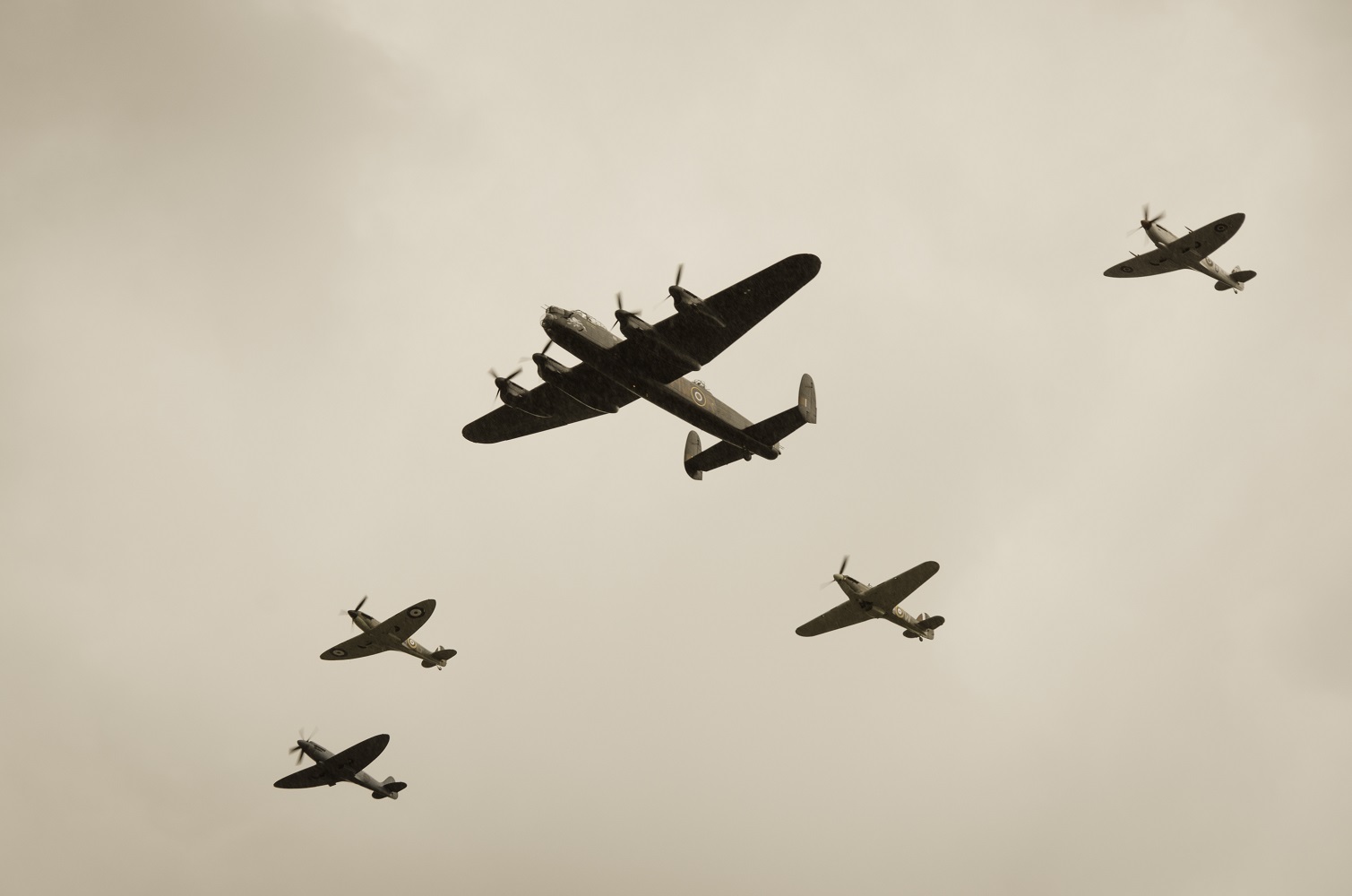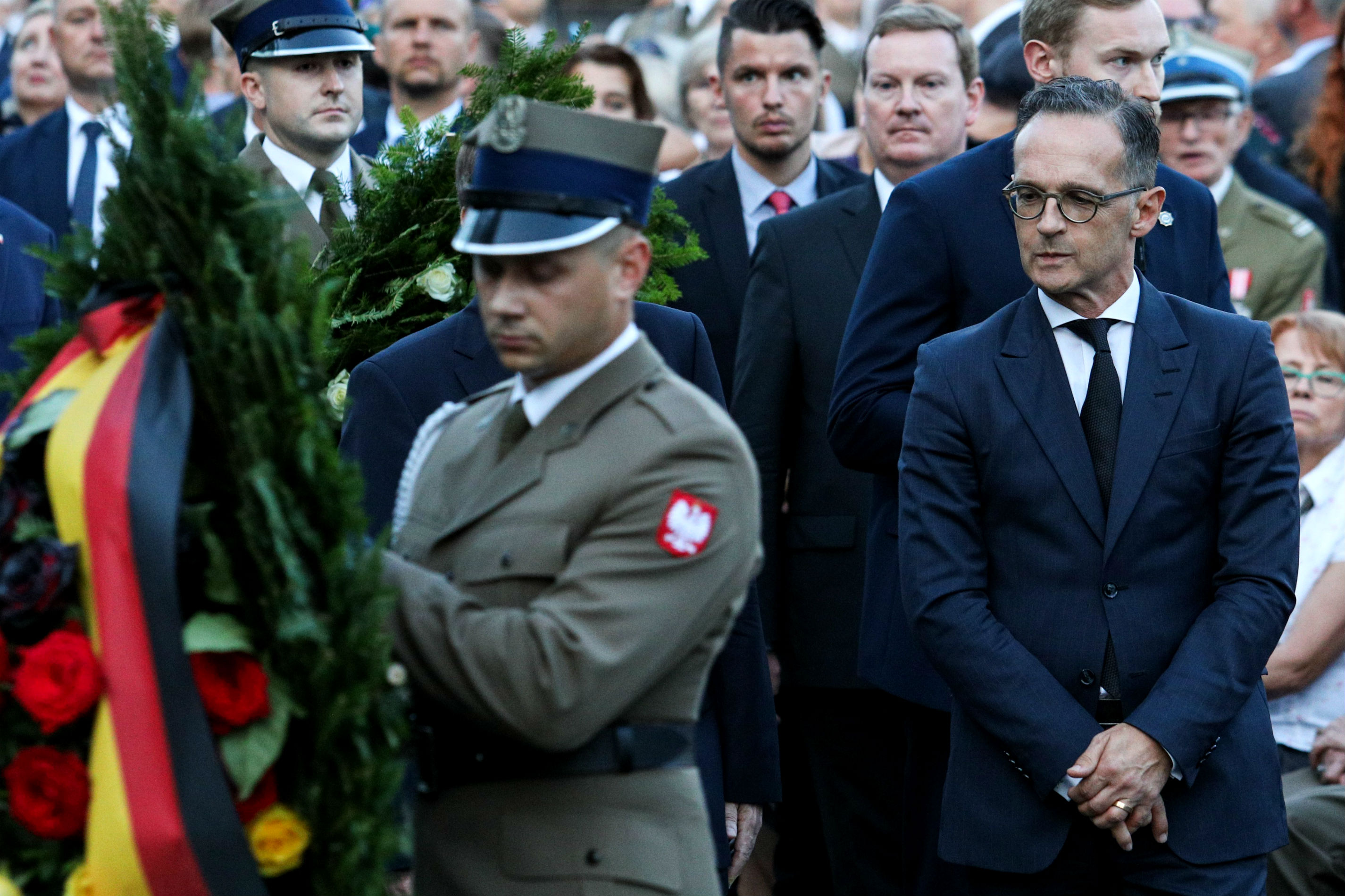What happened in European capitals upon news of the German attack on Poland is described by a British historian in his book “1939: Countdown to War.”
[Artykuł opublikowany we wrześniu 2009 roku w Pomocniku Historycznym POLITYKI „Jak rozpętała się II wojna światowa”]
1 September 1939 at 4.45 The German battleship, then training ship “Schleswig-Holstein”, moored in the port of Gdańsk, opened fire on the Polish fort Westerplatte, starting the Second World War. (…) Fifteen minutes after the “Schleswig-Holstein” opened fire, Albert Forster, the leader of the Gdańsk Nazis, who on August 24 illegally obtained the highest power in the Free City, announced to the radio the incorporation of Gdańsk into the Free City. German Reich. Church bells rang and a large flag with a swastika flew above the town hall. Gestapo units, reinforced by SS and SA militias, arrested Polish civil servants, teachers and priests, using pre-prepared lists, and then took them to the Victoriaschule, a former girls’ school, where a transit camp was organized. Opponents of the NSDAP were chased into the streets, beaten and sometimes even killed. The homes of Jews still living in Gdańsk were broken into. The next day, these actions took on even greater proportions and prisoners began to be transported to the Stutthof (Sztutowo) concentration camp, near Gdańsk (…).
Day The outbreak of war was Hitler’s time. He made an irrevocable decision and finally became the real war leader of the Germans. HAS. At 10 a.m., he arrived at the Kroll Opera in Berlin, where the German parliament has been meeting since the fire at the Reichstag building. Instead of the usual brown party uniform, he wore a military-colored uniform blouse. feldgrau, ordered a few days earlier by his servant. As the session was not convened until 3 a.m., more than a hundred deputies from more distant regions of the Reich failed to arrive – or were already in the ranks of the army. The vacant seats were therefore filled by Hitler’s guards and other party officials. Reichstag President Hermann Göring announced that these “substitute” deputies also had the right to vote, because he wanted unanimity for the full representation of the nation.
From this chosen company, Hitler received a warm ovation from the start. He spoke more briefly than usual, accusing the Poles of unwillingness to compromise, an act of aggression against Germany (the Gliwice provocation), and torpedoing his efforts to reach a peaceful agreement. “Gdańsk was and still is a German city,” he said. – The Pomeranian corridor was and still is German. If it weren’t for German culture, he said, the entire region would be stuck in “the deepest barbarism.” However, he does not express any particular hostility towards France and Great Britain. During his speech, he looked towards the diplomatic boxes where, among others, the representatives of these countries sit. When he finished, he received a standing ovation. “What determination! » – Goebbels enthuses in his diary. Hitler also announced that if he died or was killed in this war, Hermann Göring would take his place. (…) Hitler returned to the Reich Chancellery “drenched in sweat and exhausted”. Along the way, crowds of people eager to see their Führer gathered on Unter den Linden and Wilhelmstrasse.
During this day, several decrees and ordinances concerning Germany’s war effort came into force. The most important was Hitler’s consent to the “euthanasia” of people with physical or mental disabilities. This document was found after the war in German archives and was dated September 1, 1939. The order was prepared before the outbreak of war, but remained suspended during the summer months of 1939 and was finally introduced in October 1939. this year. The idea was not to “waste” medical resources on the nation’s “genetic burden” in the face of war. (…)
INNews of the German aggression against Poland reached Paris and London early in the morning. Cadogan (Sir Alexander George Montagu Cadogan, British politician, diplomat – editor’s note) was awakened at 7 a.m. by the news that Gdańsk was now part of the Reich, and shortly afterwards he was informed that the Wehrmacht had crossed the Polish border. HAS. 7.48 Chamberlain (Arthur Neville Chamberlain, British Prime Minister – editor’s note) received a cable from the Reuters agency, giving the content of the morning announcement on German radio on Hitler’s decision to attack Poland: “The Führer’s order puts an end to this madness,” the agency quoted him as saying. – There is no other option: from now on, strength will meet strength. At 7:20 a.m., General Gort telephoned the Minister of War Hore-Belisha. He said that “the Germans have moved.” The minister could no longer sleep. He rolled over on the bed, muttering, “Those Germans would be damned.” That they had to wake me up like that too! When he got up, he noticed that his barber hadn’t come and realized that he was going to have to shave.
However, it was not entirely clear what actually happened and to what extent this information could be relied upon. Late in the evening of the previous day, Chamberlain received information from a German radio message that the Polish army had crossed the border into Germany in three or four places. When Halifax (Lord Edward Halifax, British diplomat – editor’s note) asked the charge d’affaires of the German embassy for explanations, he was told that German diplomats were examining the situation. However, the Polish ambassador confirmed that war had indeed broken out and that Germany was the aggressor. HAS. At 8:30 a.m., the French ambassador in Warsaw informed Paris that the German army was attacking across the entire front. Shortly after, Chamberlain and Daladier (Eduard Daladier, French Prime Minister – editor’s note) issued a general mobilization order, and the two governments began to prepare unanimous notes demanding that Berlin immediately withdraw German troops from Polish territory.
There was a surprising lack of firmness in general mobilization instructions. British Military Secretary Hastings Ismay informed the Joint Chiefs that the government had decided to send a cable to Berlin that was not an ultimatum, but something very similar. “It is possible,” he added with restraint, “that you wish to inform your commanders, both at home and in the colonies, that such a de facto ultimatum has been sent.” Cyril Newall, the Chief of the Air Staff, urgently telegraphed all RAF commanders in Britain, the Mediterranean, Palestine, Iraq, Aden and the Far East for their saying that such a “de facto ultimatum” had to be issued to Berlin – and that it was therefore necessary to prepare for a sudden attack by the Germans.
For the rest of the day, a letter to the German authorities was carefully drafted. The British note demanded assurances that aggression against Poland would cease and “German troops would be withdrawn.” This last wording was modified by “withdrawn without delay” to encourage the Germans to react as quickly as possible. If Hitler did not accept British demands, the government in London would “fulfill its obligations towards Poland without hesitation.” By hour At 6 p.m., a meeting of Parliament was called so that Chamberlain could announce this “effective ultimatum”.
When MPs arrived at the House of Commons, the Parliament building was already in darkness, as required by mobilization orders. Sandbags and airtight doors to protect against combat gases gave it a warlike appearance. Chamberlain was greeted with a standing ovation. The Prime Minister began to talk about the enormous responsibility he had in deciding who was responsible for this war. When he declared that the direct culprit was Hitler with his “unconscious ambitions”, he allowed himself an unusual display of feeling, raising his voice and hitting the briefcase with his closed hand – which provoked further applause more numerous. When he said that Hitler’s sixteen-point ultimatum had not even been presented to the Poles (which was not entirely true), the Conservative MP Lady Nancy Astor exclaimed: “I Did you say that correctly? Finally, Chamberlain read the note that was to be passed to Hitler. When he finished, another deputy asked loudly, “Well, how much time do we give him?” The Prime Minister replied that he did not expect a positive response: the British ambassador would therefore leave Berlin, which would amount to a state of war. However, he could not say exactly how long London would wait for Hitler’s response.
IN The atmosphere in Paris was slightly different, still marked by the optimism of recent days. Some politicians thought Hitler would hesitate, others hoped Poland and Germany would finally reach an agreement that would allow both sides to save face. “In any case,” notes Saint-John Perse, “many people still don’t believe in war. » However, the French prepared a note modeled on the British one, and despite the opposition of Bonnet (Georges Bonnet, former French Minister of Foreign Affairs – editor’s note) and his supporters, this document was sent to the French ambassador in Berlin. At 9:30 p.m., Minister Józef Beck asked the French ambassador in Warsaw why the West was not doing anything to come to Poland with the aid it had pledged to provide – but at the same time in Berlin, Nevile Henderson arrived at the German Foreign Office to submit a government note to Britain’s Ribbentrop, and half an hour later the French ambassador arrived with the same mission. Henderson demanded an immediate response.
Berlin’s reaction was ambiguous. Hitler’s lackey heard the Führer, after reading the British and French notes, say: “Well, let’s see if they will help Poland.” They will probably chicken out again.” Party officials gathered in the corridors of the Reich Chancellery still thought the West was only bluffing. Hitler could not decide whether the notes were formal ultimatums or not. According to the Later memoirs from Halifax, Ambassador Henderson was authorized by the Foreign Office to explain that the note “was a warning but not an ultimatum”. However, he did not convey this to Ribbentrop. German authorities were also uncertain about the direction in which events would unfold. Schirer noticed that Berlin’s cafes and bars were unusually crowded that evening. German authorities, unlike the British and French, had not yet ordered. evacuation of the population, but when air defense sirens sounded in Berlin at 8:15 p.m., the streets were immediately deserted and people filled shelters and basements. The alarm was false, but it made a great impression on the Berliners, made even more intense by the sudden darkness.
Viktor Klemperer, a German philologist of Jewish origin living in Dresden, noticed different reactions among his friends to the news of the war with Poland. One boy said Britain and France would remain neutral, another said “the English are cowards, they won’t do anything.” However, a saleswoman I knew thought that talk of England’s neutrality was just a joke. Klemperer wrote in his diary: “There is still no declaration of war from them. It’s a question of the near future – or maybe they will not resist and will simply show weakness?
*
This is a fragment of chapter III entitled “From September 1 to 3; Local or global war? The entire book by Richard Overy has been translated by Jarosław Skowroński.







